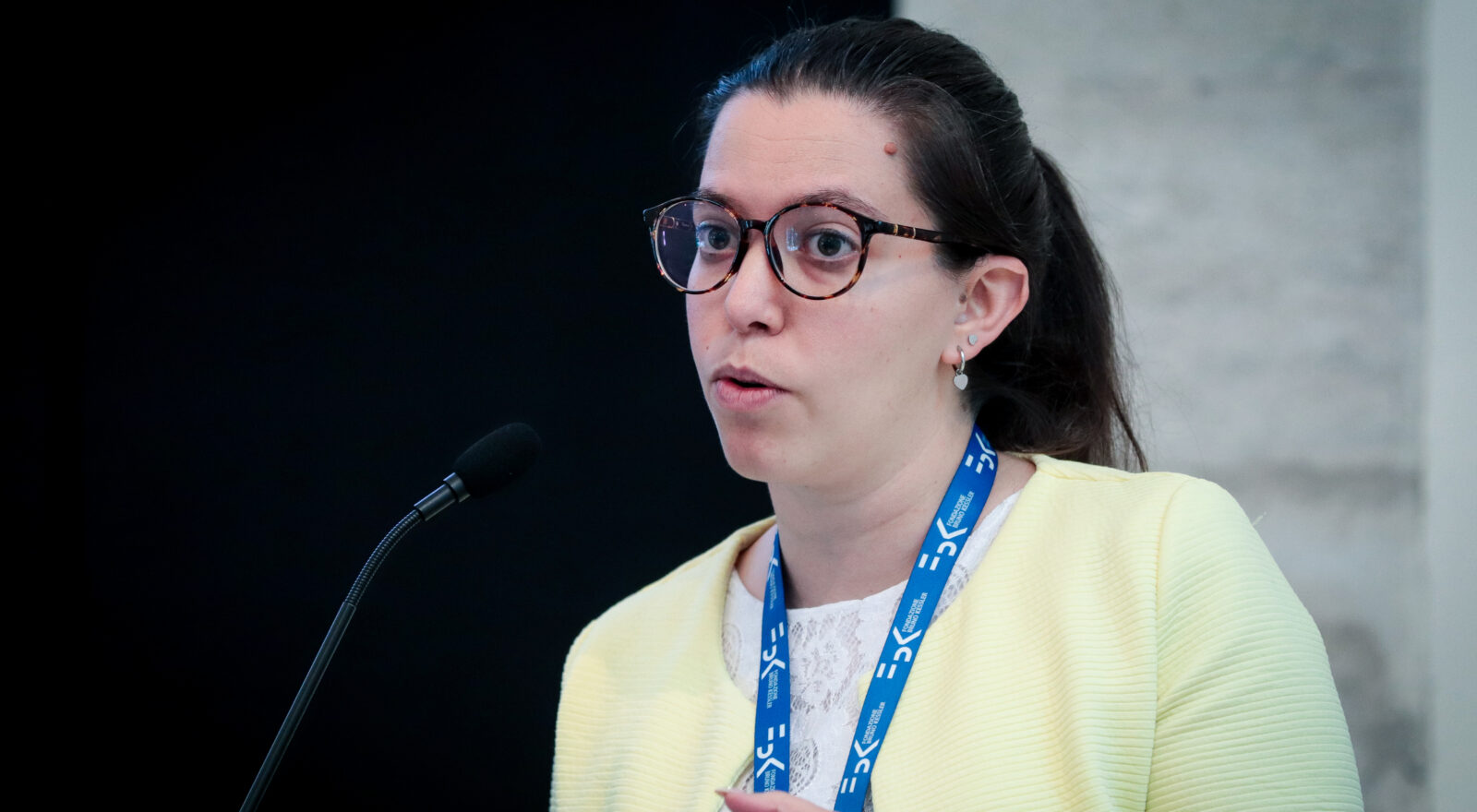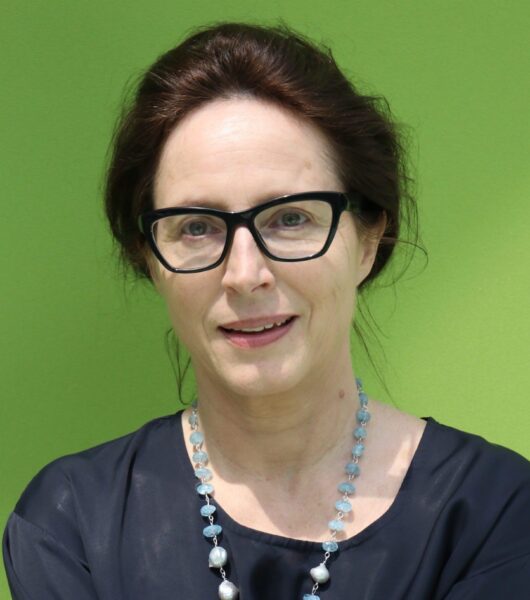
Doctor or Robot? The Prospects of Digital Health
FBK promoted and hosted the first introductory course on the use of digital technologies in medical practice for the Trento School of Specific Training in General Medicine.
What do we mean by “DIGITAL HEALTH”? What impact are new technologies having on processes and services of care and patient relations?
On May 24 and May 31, 2023, an introductory course on the use of digital technologies in medical practice was held at FBK’s Santa Croce 77 offices in Trento, Italy, offering an overview of digital health issues, alternating between presentations of case studies and discussions to allow participants to educate and inform themselves. At the same time, physicians attending the event were able to share their experiences and interact with the speakers and local health system governance representatives, who were also present in the room, to give useful insight to feed back into the design of rapidly evolving policies for the sector. In this way, through the sharing of results of digital applications in the clinical-care setting, knowledge and awareness of the digital transformation taking place in healthcare was explored in depth and problematized. A transformation laden with organizational challenges, relating in particular to the skills, digital and other ones, needed to seize the opportunities of the changes taking place, in an ecosystem where, while technologies run, institutional systems are likely to struggle to adapt at the same pace, and so are physicians and patients. For this reason, promoting informed and responsible use of digital tools and technologies was explicitly among the aims of the training module.
Four main topics were covered:
- Digital technologies for the management and monitoring of health data: Digital platforms, Electronic Health Records, Apps and devices
- Digital technologies for communication and the doctor-patient relationship: telemedicine and digital therapeutics
- Digital technologies for the analysis of health data (for the purposes of diagnosis and clinical research): Artificial intelligence and machine learning
- Medical-legal, ethical, and deontological aspects (from data privacy, physician liability, ethical use of digital technologies in medical practice, and their use in medical research)
The transdisciplinary program kicked off with the lecture “the physician of the future” by Gianfranco Gensini, Scientific Director IRCCS Multimedica of Milan and Senior Fellow at Fondazione Bruno Kessler, who framed the evolution of Hippocrates’ profession by providing references and inspirational elements that bridged tradition and innovation, identifying in the common thread of empathy between physician and patient the nexus of “suavitas” that has always made care an art of relationship. The question that remains open, with the demographic crisis prospectively multiplying the pool of over 65/senior patients and with the huge health care spending that absorbs 7 percent of the national GDP, is how to renew this partnership in an era of increasing disintermediation and declining trust in institutions.
The talk by Andrea Nicolini, program manager of the TrentinoSalute4.0 Digital Health Competence Center and Chief Public Administration Strategy Officer at Fondazione Bruno Kessler, focused on the major transformations of the health care system under the digital push, in particular focusing on a key point: the opportunity that the adoption of the newly available solutions based on the application of Artificial Intelligence for diagnostic activities may allow us to expand the number of patients benefiting from preventive actions. In other words, if the need for care increases but healthcare systems struggle to provide adequate responses to emerging demand, then we will have a flourishing of private markets offering products and services for mere profit reasons while, in parallel, it will become increasingly difficult to ensure desired levels of universal care. On this front, the technical possibility of rapidly expanding the pool of beneficiaries of screening programs partly through the use of applied and readily available AI can make a difference. The use of similar solutions opens up new legal, ethical and deontological questions. These are complex and multifaceted questions that require much slower response times than the rapidity of digital systems updates offered by companies to market.
To frame the phenomenon from general to particular aspects, FBK experts contributed as follows:
- Paolo Traverso, Director of Strategic Marketing and Business Development, with extensive research experience in the field of AI, explained how AI is constructed in order to better understand both what it is and what it is not, and how it can be useful in this context. The pivotal concept expressed through a number of anecdotes was the probabilistic nature of generative AI which, word after word, literally calculates what the next most likely word will be from the given inputs. A knowledge model that has limitations such as the ability to generalize and not contradict itself, logic skills that are, so to speak, natural to humans and that instead have yet to be trained in the new expert systems, systems that, in the case of application in clinical settings, are critical and therefore require human oversight and validation before they can be employed automatically. On this frontier, too, the theoretical challenge of a new integrative AI has been launched and sees FBK at the forefront.
- For FBK’s DHWB Center, Stefano Forti, Giuseppe Jurman, and Silvia Rizzi described the mosaic of methodologies and applications built over time by FBK in collaboration with the Trento Province Healthcare System (APSS) and the Province of Trento Government. Trentino’s is a “real world evidence” Research and Innovation Laboratory, the pact with citizens participating in clinical trials allows new digital protocols to be tested and validated all the time. The TreC-Mamma app, which aims to serve 4,000 women a year in Trentino, is an example of a decentralized clinical trial tool whose anonymized data help its continuous improvement. The underlying vision that holds the technology development practices together is one of public investment in research and development to define new standards that are then transferred to the market by digital companies in this industry, in a synergy that promotes the growth of the local economy and fosters innovation in the health care system. This is how public digital therapeutics apps originate, real digital therapies to be built together with physicians.
Other testimonies have completed the picture:
- “AI and General Medicine” was the topic of the talk by Giampaolo Collecchia, an expert in digital medicine, professor of the School of Specific Training in General Medicine of Tuscany.
- Patrizia Rocca, telemedicine manager, Sociomedical Management Staff of Azienda Socio Sanitaria Territoriale – Bergamo Est, presented a telemedicine case study with focus on heart failure.
- Giorgia Bincoletto, research fellow in Comparative Private Law at the University of Trento Law School, spoke about the protection of personal data in the context of telemedicine: from electronic health records to AI
- Guido Cavagnoli (Medical Examiner, member of the Board of Directors of the Medical Association of Trento) and Carlo Casonato (Professor of Comparative Constitutional Law at the University of Trento Law School and Jean Monnet Chair on Law and Artificial Intelligence) talked about Digital Health: between medical deontology and biolaw.
The value of the opportunity for discussion went far beyond education; the dynamics of the discussion among all participants highlighted both the challenges and the opportunities of the current phase, without concealing all the existing elements of pressure on primary care physicians, in a close dialogue that brought out the many points of view, the limitations dictated by the complexity of the health care system, and the drive toward a rapid evolution of the habits and perceptions of patients who are becoming increasingly familiar with technologies that, being user-friendly, are a strength. Once again, as on many other fronts throughout history, innovation, which now sees AI revolutionizing entire supply chains, presents itself to a careful look as a mirror to question our value systems and becomes an opportunity to redefine the priorities our society sets as it adapts to the new tools, in an endless loop between ends and means. In this sense, the quality of participation in the public discourse on AI, and Europe’s focus on the issue by rightly demanding transparency, can make a difference, restoring centrality to the goals of inclusion and ensuring the evolutionary maintenance of social and health welfare systems also through the introduction of next-generation and particularly generative digital tools.
ORGANIZERS: Scuola MGTN and FBK for HEALTH ORGANIZATIONAL POOL OF SECRETARIES
: Pool of secretaries of the School of Specific Training in General Medicine
SCIENTIFIC COMMITTEE
- Giulia Berloffa, Director of the School of Specific Training in General Medicine of Trento
- Antonella Graiff, Head of the Management of the School of Specific Training in General Medicine of Trento, Coordinator of the FBK for Health Program
- Luca Pasolli, Head of the theoretical activity of the School of Specific Training in General Medicine of Trento


